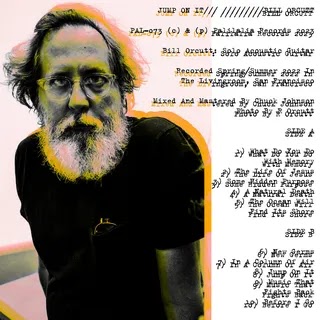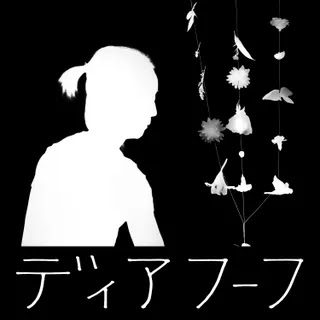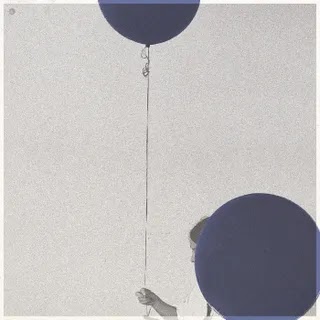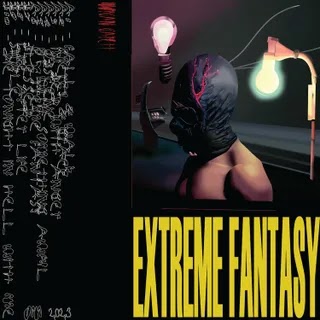An extended investigation of the electric guitar solo, the latest record from Ben Chasny’s experimental project is graceful and surprising.
There was exactly one moment when it was possible to briefly state the kind of music that Ben Chasny makes. It was in 2005, when his uncharacteristic singer-songwriter album School of the Flower caused his seven-year-old experimental project, Six Organs of Admittance, to be linked with the acoustic psych-pop fad known as New Weird America or, somehow even more embarrassingly, freak-folk. But the former term was a particularly odd fit for him. Like the guitarist Jack Rose, Chasny’s acoustic fingerpicking looked beyond folk idioms and toward influences like the Indian raga, which he fused with drone music. This wasn’t stuff you’d sing around a campfire, and even Chasny’s least hermetic tunes felt distinct from the ersatz standards, sea shanties, and court songs that became associated with freak-folk.
Chasny’s high, almost elfin voice is a presence on some of his other albums, too, although it’s as likely to serve purposes of color or rhythm as to be the central focus. Though his music is always marked by certain tensions—between the mystical and the meticulous, the extemporized and the exacting—he has never done the same thing twice. He keeps turning over new facets of his singular preoccupation with the guitar, the fixed point in a questing body of work that spans the crustiest noise and the most winsome folk-pop. As his playing has deepened, he has expanded his practice to incorporate everything from rewired amplifiers to four-track tapes he’d buried in his yard. He’s traveled a long way from the starting point of guitar-explorer exemplars like Sir Richard Bishop, over rhizomatic paths both traditional and abstract, to a place where genre breaks down into stray fence posts on an open range.
Though Chasny’s compositions typically blend the edges of close-miked guitars into vast, low-lying washes of sound, the instrument looms especially large over his latest album, The Veiled Sea—though not, of course, in a way it has before. It’s the rare, and perhaps only, Six Organs of Admittance LP that features no acoustic guitar. It is an eloquent series of essays on the electric guitar solo—as Platonic object, as mythic measure, as harmonic structure and cultural construct. Each of these five tracks (after a brief prelude, “Local Clocks”) sounds like a rock god’s spontaneous outpouring as heard by some superior being, with seconds stretching into minutes, turning impulses into decisions. It’s a creative choice that would probably feel tiresome if Chasny weren’t such a skilled guitarist and tactful composer, and he mostly manages to boil down the macho bloat of his sources to graceful essences without underplaying the pomp.
Deep with occult concepts, Chasny’s music always gives the impression of something you might play with miniatures on a Dungeons & Dragons map. The highlight “Somewhere in the Hexagon of Saturn” evokes the cosmic choogle that Brian Eno and Robert Fripp constellated in the ambient classics No Pussyfooting and Evening Star, which is just what you’d expect from Chasny’s turn to guitar heroism. “All That They Left You,” which heads earthward over a very exciting drop, is what you’d least expect: a big, four-on-the-floor homage to 1980s hair metal wailer Steve Stevens, of “Dirty Diana” and “Top Gun Anthem” fame, topped with a corroded alt-rock hook. “Last Station, Veiled Sea” wrings misshapen melody from a clangorous guitar effect. Only the cover of “J’ai Mal aux Dents,” which sounds like Jon Spencer jamming with Spacemen 3, wears out its welcome. Your mileage may vary, but I find the song’s endless chanting monotonous when Faust does it, which isn’t mitigated by the glossier setting of Chasny’s interpretation.
Though Chasny tends to work best in subtle, quiet folds, these songs are far from his first attempt at speaking up; the music comes nowhere near the splintering fury of Hexadic, part of a trilogy of albums based on the Cagean conceit of composing with a deck of playing cards. Instead, it continues a turn away from obscurity and toward popular forms that has been evident in recent albums such as the indie-guest-riddled Burning the Threshold in 2017 and last year’s brilliant, inviting Companion Rises. It’s a valuable addition to a varied yet cohesive body of work whose growth shows no sign of slowing. This is experimental music that never treats the word “experimental” as a fixed adjective: Chasny always remembers the fluid verb at its root.
















0 comments:
Post a Comment